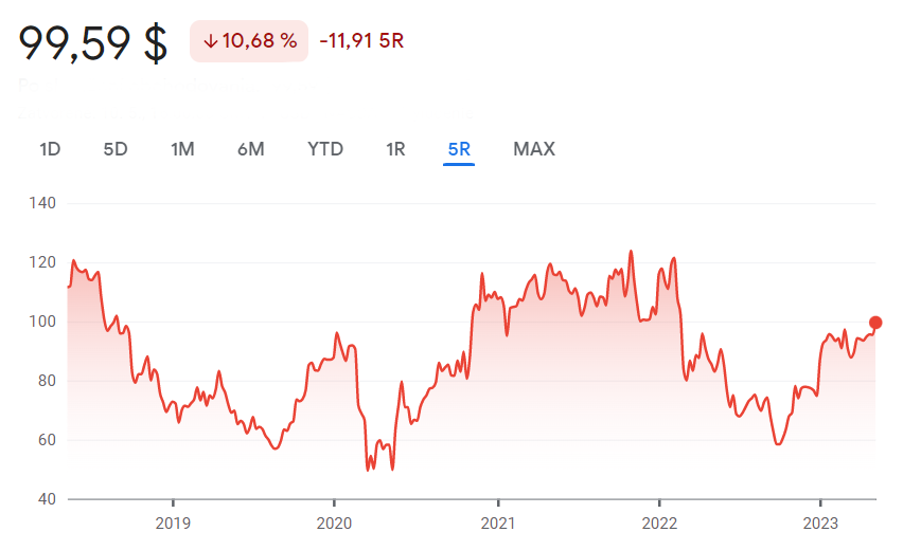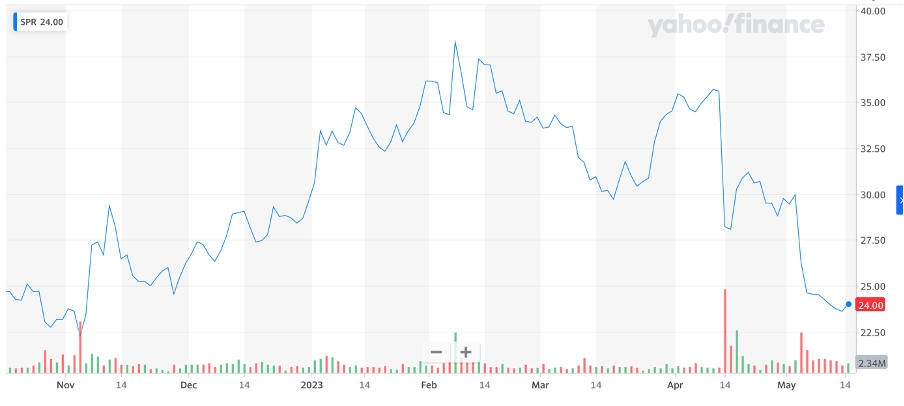Airbus keeps ahead of the competition
Airbus, the French pioneer in the aviation industry, delivered 54 aircraft in April and has managed to handle 181 deliveries so far this year. Although these figures represent a 5% drop compared to the same period last year, it still holds a lead over its biggest rival, the American Boeing. Orders from Viva Air, which is being taken over by Avianca due to financial problems, were cancelled this month. Airbus had planned to deliver 720 planes last year, but the target was cut to 700 and eventually cancelled altogether because of supply chain difficulties.
Boeing's orders are falling
Boeing received 13 net orders in April, with 21 cancelled and only 26 planes delivered. Deliveries of the popular 737 MAX were halted, and orders were down from March's 52 orders. Boeing Chief Financial Officer Brian West said the pace of MAX deliveries will slow in the second quarter, but will improve later to a projected 40 planes per month.
Ryanair plans to aim high
Europe's largest low-cost carrier, Ryanair, has placed orders with Boeing for up to 300 aircraft, with 150 of those orders just for the 737 MAX 10. The company wants to expand its fleet with this move, which will cost it $40 billion. It's a win-win for Boeing as it gets back up and running after a two-year hiatus due to the pandemic-related crisis. The new deal also marks a truce between Ryanair and Boeing after price disagreements and delayed deliveries a few months ago. Ryanair plans to meet its target of 300 million passengers by March 2034 with this order. This year, passenger numbers were around the 168 million level. Although Ryanair, and all airlines for that matter, have had a tougher time, the company has managed to achieve an increase of more than 33 percent in share value this year and the planned orders should help it to maintain a stable position in the market.*

Ryanair's share performance over the past five years (Source: Google Finance)
Spirit AeroSystems Holding declines slightly
It recently suffered a loss of $110 million due to manufacturing-related expenses at Airbus and Boeing. Losses related to the production of Airbus A350 and Boeing 787 models in the first quarter amounted to approximately $81 million and were exacerbated by supply chain costs. This led to a $17 million reduction in the company's first quarter profit and is expected to increase costs beyond the planned $31 million. This year, the company expects a $100 million to $150 million shortfall in funding [1] and the stock posted an adjusted loss of $1.69 per share.*

Spirit AeroSystems Holding's share performance over the past five years (Source: Yahoo)
Concerns about plane ticket prices
The changing trend has been toward increased airline operating costs and decreasing revenue, raising concerns about the level of travel spending in times of economic instability. Demand for travel on weekdays is declining. Compared to last year, passengers are booking dates more in advance, and the cancellation of ticket change fees has an adverse effect on the share of sold seats, while companies' profits are thus falling. The whole market with supply chains needs to be monitored as part of investing in these shares, as well as people's interest in travel. [2]
Olivia Lacenova, chief analyst at Wonderinterest Trading Ltd.
* Past performance is no guarantee of future results.
[1,2] Forward-looking statements are based on assumptions and current expectations, which may be inaccurate, or on the current economic environment, which may change. Such statements are not guarantees of future performance. They involve risks and other uncertainties that are difficult to predict. Results may differ materially from those expressed or implied by any forward-looking statements.